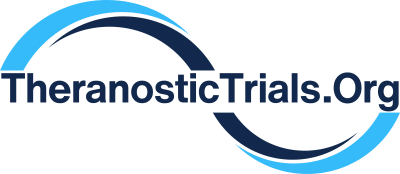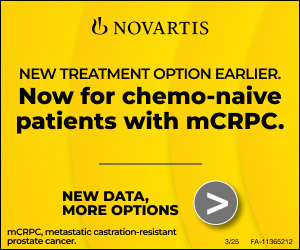Filters
(15 results)
Study Types
Enrolling Status
Study Sponsor Type
Lymphomas
Study Status
Last Updated: Tue Jul 15 2025
Pharmaceutical Trials (Site Sponsors)
Pharmaceutical & Investigator Trials (Non-Site Sponsors)
🇺🇸
NCT01697930
A Phase I Study: PET Imaging of Cancer Patients Using [18F] 4-L-Fluoroglutamine (2S,4R)
This is a Phase I study. This study is the first time that a new experimental drug called 18FFluoroglutamine, or F-Glutamine, is being used in people. F-Glutamine is a drug designed to be used with PET scanners that can 'see' where F-Glutamine goes in the body, after its injected. PET scanners are one of the kinds of scanners you normally find in a hospital radiology department. The researchers have found that tumors in animals absorb F-Glutamine. The researchers believe that scans with F-Glutamine might be able to find tumors in patients. This first in-human study is being done to see how long F-Glutamine lasts in the blood, when it is given to people in tiny amounts by an injection, and to see where F-Glutamine goes in the body. If the results of this trial are good, then the study doctors plan to use F-Glutamine in another trial to see if scans with F-Glutamine are better for finding tumors compared to the standard types of scans that doctors use.
NCT04333524
FDG PET Evaluation for Marginal Zone Lymphoma and Its Prognostic Role: an International Multicenter Retrospective Analysis
The study will be conducted on performed scans. No additional scan or procedure will be required for study purposes. The study will be divided into two sections with different aims: Part A will be conducted to understand the role of PET for the staging of MZL. PET scans will be analyzed and compared with data retrieved from CT scan and from other staging procedures, also including bone marrow biopsy, ultrasound, and laboratory exams. This part of the study will describe ability of PET to identify pathologic lesions and to contribute to staging definition or to stage migration. Part B will be conducted to validate standardized criteria for response assessment in MZL including FDG-PET among procedures and to define the prognostic role of metabolic response in MZL. For this purpose the primary endpoint for this part of the study is defined as the progression free survival. Secondary endpoint will be Overall survival, and response rate defined with conventional procedures and rate of histological transformation.
NCT04512716
Iomab-ACT: A Pilot Study of 131-I Apamistamab Followed by CD19-Targeted CAR T-Cell Therapy for Patients With Relapsed or Refractory B-Cell Acute Lymphoblastic Leukemia or Diffuse Large B-Cell Lymphoma
This is a single-cohort pilot study; patients will receive 131-I apamistamab 75 mCi prior to CAR T-cell infusion in order to determine the maximum tolerated dose of 131-I apamistamab.
NCT04871607
A Phase 2 Trial of Yttrium-90 Labeled Anti-CD25 Monoclonal Antibody Combined With BEAM Chemotherapy (aTac-BEAM) Conditioning for Autologous Hematopoietic Cell Transplantation (AHCT) in Patients With Primary Refractory or Relapsed Hodgkin Lymphoma
his phase II trials studies the effects of yttrium-90 labeled anti-CD25 monoclonal antibody combined with BEAM chemotherapy conditioning in treating patients with Hodgkin lymphoma that does not response to treatment (refractory) or has come back (relapsed). Yttrium-90-labeled anti-CD25 is an antibody (proteins made by the immune system to fight infections) that is attached to a radioactive substance and may kill cancer cells and shrink tumors. Chemotherapy drugs, such as carmustine, etoposide, cytarabine, and melphalan, work in different ways to stop the growth of tumor cells, either by killing the cells, by stopping them from dividing, or by stopping them from spreading. Giving chemotherapy before a peripheral blood stem cell transplant helps kill cancer cells in the body and helps make room in the patient's bone marrow for new blood-forming cells (stem cells) to grow.
NCT05093335
In-human CXCR4 Imaging of Blood Cancers Using [68Ga]-Pentixafor-PET
The purpose of this study is to determine the uptake of the imaging agent [68Ga]-pentixafor with PET/CT scans in people with monoclonal gammopathy of undetermined significance (MGUS), smoldering multiple myeloma (SMM), and non-Hodgkin lymphoma (NHL).
NCT05654675
Evaluation of the Fractional Uptake Rate (FUR) in 18F-FDG PET/CT to Assess Tumour Metabolic Activity
The goal of this study is to evaluate the use of new method to quantify the amount of sugar a tumor consumes using PET/CT. The main questions it aims to answer are: Is the new quantification method superior with respect to the method currently used in the clinic? Does the new quantification method provide accurate assessment of the sugar consumption of tumours? Participants who will undergo a standard care FDG PET/CT scan will in additional receive a dynamic PET/CT scan prior to the standard care scan. In addition blood samples will be drawn at three time points during the examination.
NCT06132737
An Open-label Dose Escalation Study to Evaluate Safety, Tolerability, Biodistribution and Efficacy of [90Y]Y-PentixaTher for the Therapy of Recurrent or Refractory Primary or Isolated Secondary Central Nervous System Lymphoma.
This will be an open-label, single-arm, national phase 1/2 therapeutic study to evaluate the safety, tolerability, and preliminary efficacy of [90Y]Y-PentixaTher ([90Y]Y-PTT) for the treatment of recurrent or refractory primary or isolated secondary central nervous system (CNS) lymphoma. The study will be performed in three cohorts with different dose levels (2, 4 and 6 GBq) according to the best-of-5 dose escalation design. A safety review committee (SRC) will evaluate dose-limiting toxicities and decide about escalation and de-escalation. Eligible patients will receive one cycle of [90Y]Y-PTT, which will be administered intravenously. There will be no comparator in this study. Safety, biodistribution, dosimetry and efficacy will be evaluated during the core study phase (Visit 1 until Visit 5). Thereafter three follow-up (FU) visits will take place, at three-months intervals to evaluate the extent of disease.
NCT06148220
A Study of the Clinical Application of [18F]RCCB6 PET Imaging in the Diagnosis of CD70-expressing Multiple Tumors
The aim of this study was to establish and optimize the [18F]RCCB6 imaging method, and its physiological and pathological distribution characteristics, on the basis of which the diagnostic efficacy of the above imaging agents in renal cancer and lymphoma was evaluated.
🇨🇳
NCT06795113
Optimization of 18F-FDG PET/CT Response Assessment and Prognostic Evaluation Strategies for High-Metabolism Lymphoma
To develop a novel method for evaluating treatment response in lymphoma by utilizing PET/CT imaging data from patients with high-metabolic lymphoma. This involves comparing end-of-treatment PET (EOT-PET) with interim PET (iPET) results to establish a new response assessment approach. The aim is to contrast this method with the Lugano classification criteria, providing clinicians with more scientific and accurate tools for response evaluation and prognosis prediction.
NCT02952508
An Open-Label, Multicenter, Phase 2 Study of Iopofosine I 131 (CLR 131) in Patients With Relapsed or Refractory (R/R) Select B-Cell Malignancies (CLOVER-1) and Expansion Cohort in Patients With Waldenstrom Macroglobulinemia (CLOVER-WaM)
Part A of this study evaluates iopofosine I 131 (CLR 131) in patients with select B-cell malignancies (multiple myeloma( MM), indolent chronic lymphocytic leukemia (CLL)/small lymphocytic lymphoma (SLL), lymphoplasmacytic lymphoma (LPL)/Waldenstrom Macroglobulinemia (WM), marginal zone lymphoma (MZL), mantle cell lymphoma (MCL), diffuse large B-cell lymphoma (DLBCL), and central nervous system lymphoma (CNSL) who have been previously treated with standard therapy for their underlying malignancy. Part B (CLOVER-WaM) is a pivotal efficacy study evaluating IV administration of iopofosine I 131 in patients with WM that have received at least two prior lines of therapy.
NCT03121456
18F-FDG PET Scan and MRI Diffusion : Correlation Study of the Evaluation of the Early Therapeutic Response of Diffuse Large B-cell Lymphoma
Open-label, multicenter, uncontrolled and non-randomized study comparing 18F-FDG PET-Scan and diffusion MRI in the assessment of the early therapeutic response of Diffuse Large B-Cell Lymphoma.
NCT04600804
The Role of 18F-FDG-PET for Staging and Prognostication in Patients Enrolled in the Fondazione Italiana Linfomi (FIL) MCL0208 Trial
A retrospective, multicenter, non-interventional, imaging study ancillary to FIL_MCL0208 clinical trial (NCT02354313) in untreated adult patients with mantle cell lymphoma.
NCT05096234
18F-F-AraG PET Imaging to Evaluate Immunological Response to CAR T Cell Therapy in Lymphoma
This is a pilot study in adult subjects with aggressive B-cell lymphoma who will receive commercial or research CAR T cell therapy as anticancer treatment.
NCT05390632
Head-to-head Comparison Between [18F]-FDG PET/CT and PET/MRI in Lymphomas
Investigating the performance of 18F-FDG PET/CT and PET/MRI in lymphomas




